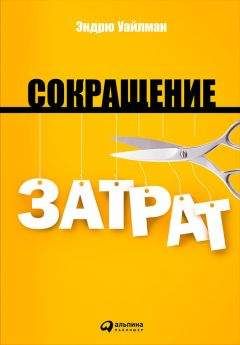Виктория Мороз - English for Small Business Management
Все авторские права соблюдены. Напишите нам, если Вы не согласны.
Описание книги "English for Small Business Management"
Описание и краткое содержание "English for Small Business Management" читать бесплатно онлайн.
Настоящее учебное пособие предназначено для студентов 2 курса, обучающихся по направлению подготовки 080200.62 Менеджмент. В учебном пособии, составленном на основе аутентичных англоязычных источников, рассмотрены основные принципы работы предприятий малого бизнеса в США, особенности их организации, трудности и преимущества. Целью учебного пособия является совершенствование навыков чтения литературы по специальности на английском языке, навыков говорения и письма, а также обогащение терминологического аппарата.
В. В. Мороз
English for Small Business Management
Introduction
Данное учебное пособие предназначено для обучения студентов направления подготовки 080200.62 Менеджмент чтению специальной литературы как самостоятельно, так и в аудитории.
Цель данного учебного пособия – изучить ключевые темы в области управления предприятий, расширить как терминологический словарный запас, так и общеупотребительной лексики, развить умения извлекать необходимую информацию, анализировать и систематизировать ее.
Учебное пособие включает в себя пять разделов, состоящих из специальных текстов, упражнений на освоение и закрепление лексики, грамматических упражнений, глоссария, а также проектных заданий и заданий практической направленности.
В каждом разделе предлагаются специализированные тексты, предназначенные как для самостоятельной, так и для аудиторной работы с использованием технологии развития критического мышления, что позволяет сформировать у студентов навыки работы с текстом, в группе и самостоятельно, не только при изучении иностранного языка, но и других дисциплин.
Тексты в разделах сопровождаются упражнениями на развитие навыков работы со словарем, расширение словарного состава как общеупотребительной, так и профессиональной лексики. Каждый раздел завершается упражнениями практической направленности для закрепления пройденного материала.
1 Unit 1. Family Business Opportunities
1.1 Class work. The family business: a unique institution
1.1.1 Exercise 1. Draw a family tree arranging the following words in a proper order
Son, daughter, mother, father, sister, brother, grandparents, nephew, niece, cousin, aunt, uncle, wife, husband, spouse.
1.1.2 Exercise 2. Before you read, make a chart and put down everything you know about family business
1.1.3 Exercise 3. Divide the class into groups of four to read texts A, B, C, and D. Then share the information read with the group mates
1.1.3.1 Text A. What Is a Family Business?
Vocabulary Notes:
entrepreneurship – предпринимательство;
to strive for – прилагать усилия, стараться, стремиться;
to pursue – заниматься ч. – л., иметь профессию;
to distinguish – отличать, выделять, служить отличительным признаком;
to keep the books – вести бухгалтерские книги;
to some extent – в некоторой степени.
One of the routes to entrepreneurship is that of entering a family business. Many sons and daughters of business owners have the option of joining the firm founded by their parents or grandparents. Family leaders may, in fact, strive for continuation of a family business over several generations, thereby creating opportunities for children or other relatives to pursue entrepreneurship in that business. Young family members must then decide, often during their college years, whether to prepare for a career in the family business. This decision should be based on an understanding of the dynamics of such a business. A number of features distinguish the family firm from other types of small businesses. Its decision making, for example, involves a mixture of family and business values.
Family business – a company in which family members are directly involved in the ownership and/or functioning
A family business is characterized by ownership or other involvement by two or more members of the same family in its life and functioning. The nature and extent of that involvement varies. In some firms, family members may work full-time or part-time. In a small restaurant, for example, one spouse may serve as host and manager, the other may keep the books, and the children may work in the kitchen or as servers.
Most family businesses are small. However, family considerations may continue to be important even when such businesses become large corporations. Companies such as WalMart Stores, Levi Strauss and Company, Ford Motor Company, and Marriott Corporation are still recognized, to some extent, as family businesses.
1.1.3.2 Text B. Family and Business Overlap
Vocabulary Notes:
to overlap – частично совпадать, перекрывать;
to nurture – выращивать, воспитывать, обучать;
in the short run – в ближайшем будущем, в ближайшее время;
tension – напряжение, напряженное состояние;
consistent – последовательный, стойкий;
to be concerned with – иметь отношение, касаться.
Any family business is composed of both a family and a business. Although these are separate institutions – each with its own members, goals, and values – they overlap in the family firm.
Families and businesses exist for fundamentally different reasons. The family's primary function relates to the care and nurture of family members, while the business is concerned with the production or distribution of goods and/or services. The family's goals are the fullest possible development of each member, regardless of limitations in ability, and the provision of equal opportunities and rewards for each member. The business's goals are profitability and survival. These goals may be either in harmony or in conflict, but it is obvious that they are not identical. In the short run, what's best for the family may or may not be what's best for the business.
In many cases, one decision may serve both sets of overlapping interests. However, the differing interests can also create tension and sometimes lead to conflict. Relationships among family members in a business are more sensitive than they are among unrelated employees. For example, a manager may become angry at an employee who consistently arrives late, but disciplining the employee is much more problematic if he or she is also a family member.
1.1.3.3 Text C. Decisions Affecting Both Business and Family
Vocabulary Notes:
concern – забота, дело, интерес;
to impact – ударять(ся), сталкиваться;
to opt – выбирать;
to complicate – усложнять;
to survive – выживать;
unduly – неправильно, чрезмерно.
The overlap of family concerns and business interests in the family firm complicates the management process. Many decisions impact both business and family. Consider, for example, a performance review session between a parent-boss and a child-subordinate. Even with non-family employees, performance reviews can be potential minefields. The existence of a family relationship adds emotional overtones that vastly complicate the review process.
Which comes first, the family or the business? In theory, at least, most people opt for the family. Few business owners would knowingly allow the business to destroy their family. In practice, however, the resolution of such tensions becomes difficult. For example, a parent, motivated by a sense of family responsibility, may become so absorbed in the business that he or she spends insufficient time with the children.
If the business is to survive, its interests cannot be unduly compromised to satisfy family wishes. To grow, family firms must recognize the need for professional management and the fact that family concerns must sometimes be secondary.
The health and survival of a family business require a proper balancing of business and family interests. Otherwise, results will be unsatisfactory to both.
1.1.3.4 Text D. Advantages of Family Involvement in the Business
Vocabulary Notes:
to derive – получать, извлекать;
through thick and thin – несмотря ни на какие препятствия, трудности;
commitment – обязательство;
reluctant – делающий ч. – л. с неохотой;
to hinge on – зависеть от;
to be at stake – быть поставленным на карту, находиться под угрозой.
Problems associated with family businesses can easily blind young people to the advantages that can be derived from participation of family members in the business. The many positive values associated with family involvement should be recognized and used in the family firm. A primary benefit comes from the strength of family relationships. Members of the family are drawn to the business because of family ties, and they tend to stick with the business through thick and thin. A downturn in business fortunes might cause non-family managers to seek greener pastures elsewhere. A son or daughter, however, is reluctant to leave. The family name, the family welfare, and, possibly, the family fortune are at stake. In addition, a person's reputation as a family member may hinge on whether he or she can continue the business that Mom or Grandfather built.
Family members may also sacrifice income to keep a business going. Rather than draw large salaries or high dividends, they permit such resources to remain in the business for current needs. Many families have gone without a new car or new furniture long enough to let the new business get started or to get through a period of financial stress.
Some family businesses use the family theme in advertising to distinguish themselves from their competitors. Such advertising campaigns attempt to convey the fact that family-owned firms have a strong commitment to the business, high ethical standards, and a personal commitment to serving their customers and the local community.
1.2 Class Work. The culture of a family business
1.2.1 Exercise 1. Look through the text and prove the following statements
1 The way the firm is doing business and its priorities is called organizational culture.
2 In a family business the values of a founder can become the values of both his family and business.
3 A number of cultural patterns can be applied in some aspects of family firms.
Vocabulary Notes:
priority – приоритет, порядок срочности, очередности;
particular – индивидуальный, частный, отдельный, особый;
to pick up – подхватить, научиться;
distinctive – отличительный, характерный;
competitive advantage – конкурентное преимущество;
to cater (to, for) – потворствовать, угождать;
to discern – различать, распознавать, отличать, проводить различие;
to appreciate – высоко ценить, оценивать по достоинству;
commitment – обязательство;
legacy – наследство, наследие;
facet – аспект, грань.
Family firms, like other business organizations, develop certain ways of doing things and certain priorities that are unique to each particular firm. These special patterns of behaviors and beliefs are often described as organizational culture. As new employees and family members enter the business, they tend to pick up these special viewpoints and ways of operating.
Organizational culture – patterns of behaviors and beliefs that characterize a particular firm
The Founder's Imprint on the Culture
The distinctive values that motivate and guide an entrepreneur in the founding of a firm may help to create a competitive advantage for the new firm. For example, the founder may cater to customer needs in a special way and make customer service a guiding principle for the firm. The new firm may go far beyond normal industry practices in making sure customers are satisfied, even if it means working overtime or making a delivery on Saturday. Those who work in the business quickly learn that customers must always be handled with very special care.
In a family business, the founder's core values may become part of both the business culture and the family code – "the things we believe as a family." John Robben, the second-generation CEO of RobToy, Inc., describes the legacy of his father, who founded the firm:
But he left us much more than his confidence, and his willingness to take a chance. My father never lied; nor did he ever cheat anyone or take a dollar he didn’t honestly earn. He passed these values on, first to me and then, through me, to his grandchildren. It's funny how that worked. He never talked about these things, he just did them.
The last sentence above tells us something about the way cultural values are transmitted. Family members and others in the firm learn what's important and absorb the traditions of the firm simply by functioning as part of the organization.
Cultural Patterns in the Firm
The culture of a particular firm includes numerous distinctive beliefs and behaviors. By examining those beliefs and behaviors closely, we can discern various cultural patterns that help us understand the way in which the firm functions.
W. Gibb Dyer, Jr., a professor at Brigham Young University, has identified a set of cultural patterns that apply to three facets of family firms: the actual business, the family, and the governance (board of directors) of the business.
An example of a business pattern is a firm's system of beliefs and behaviors concerning the importance of quality. Members of an organization tend to adopt a common viewpoint concerning the extent to which effort, or even sacrifice, should be devoted to product and service quality. When leaders of a firm consistently demonstrate a commitment to quality, they encourage others to appreciate the same values. By decisions and practices that place a high priority on quality, therefore, leaders in a family business can build a business pattern that exhibits a strong commitment to producing high-quality goods and services.
Подписывайтесь на наши страницы в социальных сетях.
Будьте в курсе последних книжных новинок, комментируйте, обсуждайте. Мы ждём Вас!
Похожие книги на "English for Small Business Management"
Книги похожие на "English for Small Business Management" читать онлайн или скачать бесплатно полные версии.
Мы рекомендуем Вам зарегистрироваться либо войти на сайт под своим именем.
Отзывы о "Виктория Мороз - English for Small Business Management"
Отзывы читателей о книге "English for Small Business Management", комментарии и мнения людей о произведении.

























